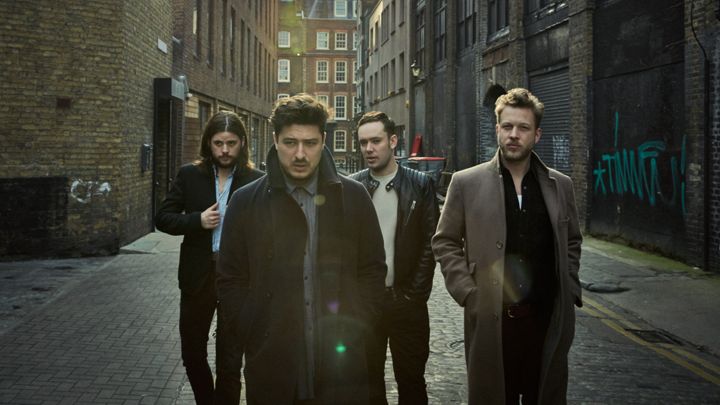When Mumford & Sons delivered the news that they would be traversing the wilderness without their beloved banjos, panic emanated from their fans across the globe. How could one of the most iconic bands of the last ten years go on without their most prized instruments? Swapping banjos for electric guitars and stepping into a much more crowded genre, Wilder Mind manages and transcends all expectations with a stunning third foray.
With their Babel world tour coming to a tired and weary end, Mumford and Marshall on a whim bought a 1967 blond Telecaster and a 1974 Gibson 335 from a guitar shop in Chicago. Inspired by new friends and soon-to-be fellow indie rockers The National, they took to the studio to play around with what would become Monster on the new album. Their inner rock was unleashed and the path to Wilder Mind had began.
Wasting no time at all, their new sound is heard from the very first track Tomkins Square Park, with rich electric guitar riffs and heavy drumming. Perhaps the mellow, comfortable early tribute to the New York park is designed to ease rabid fans into their new style and prepare them for what is to come. Mumford’s vocals more than survive the shift, as he embraces and flaunts the added power drums and guitars give to his vocals.
It’s not until lead single Believe that we’re allowed a taste of Marshall’s epic guitar riffs. Stripped back synth of an almost ethereal nature is transformed into a bloody contest of supremacy between Marshall’s guitar riffs and Mumford’s vocals, gaining exponential intensity. Second single The Wolf is equally explosive, with a smattering of guitars thrashing from the outset. The key progression from their previous albums is that verses are increasingly taken by energy infused instrumental sections, no longer merely contained to the background.
Yet these two songs suggest a Lion Little Man-type hit may escape the boys this time around. Considering that these epic first two singles have yet to gain any real traction in the charts, it is unlikely that others will, as it’s all in the same grain.
While the title track Wilder Mind will inevitably be under-appreciated, it has one of the most infectious vocal grabs of the entire album. From a foundation of syncopated drumming, it never tries too hard and is all the better for it. With Snake Eyes and Just Smoke, the songs benefit from the addition of an actual drum kit, rather than the percussion haphazardly created by Mumford’s kick drum. Perhaps as some kind of concession to those still yearning for an acoustic song, Only Love treads the same path as the previous albums with soaring harmonies and a single guitar.
If Babel was considered one dimensional for its obvious focus on romantic problems, Wilder Mind has a far darker, more mysterious edge. It comes as a natural progression after 8 years of writing and touring. Disillusioned by their previous style – both musically and generally (including showing remorse over their name) – it is an attempt to break free of their previous identity and break new ground. On the surface it does seem as though the change merely pushes them into an already overcrowded and unoriginal genre, Wilder Mind succeeds in pushing its own boundaries, opening up a whole new live show that can now incorporate the intimate with stadium filling rock anthems.

